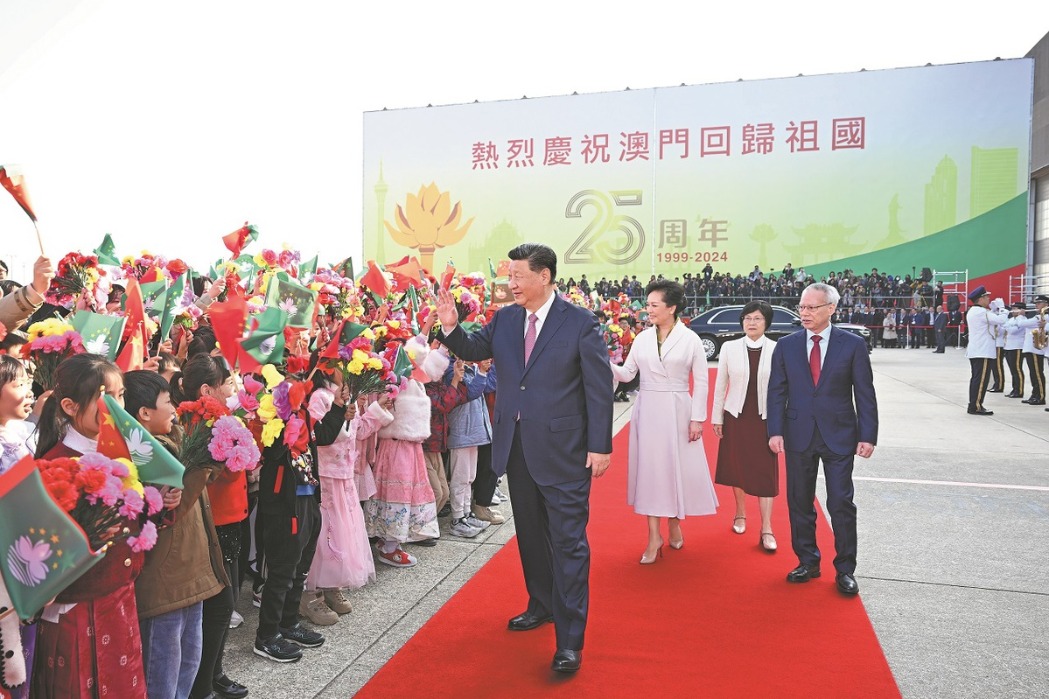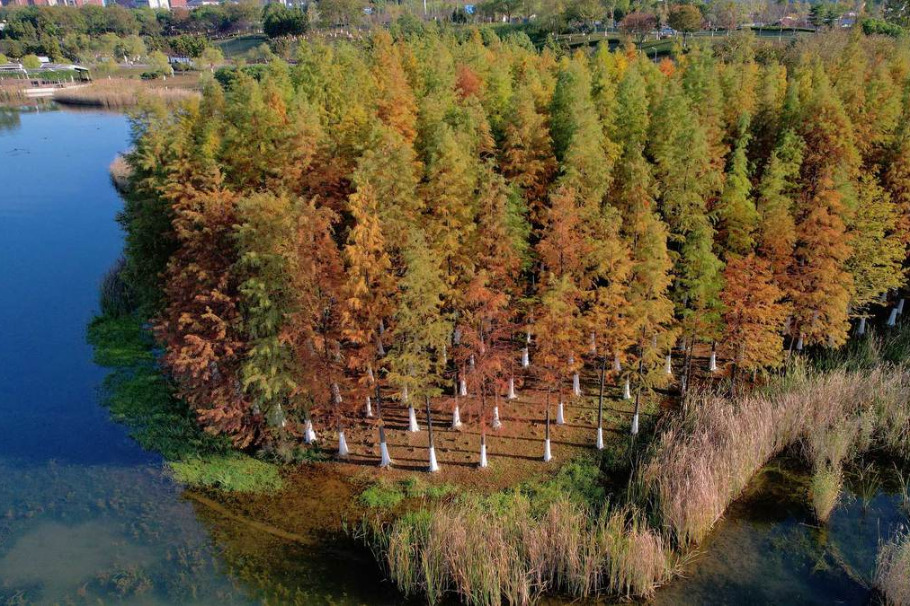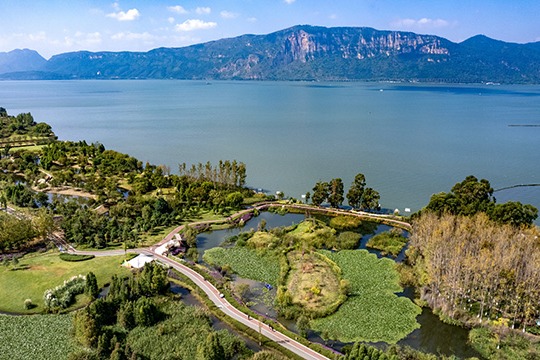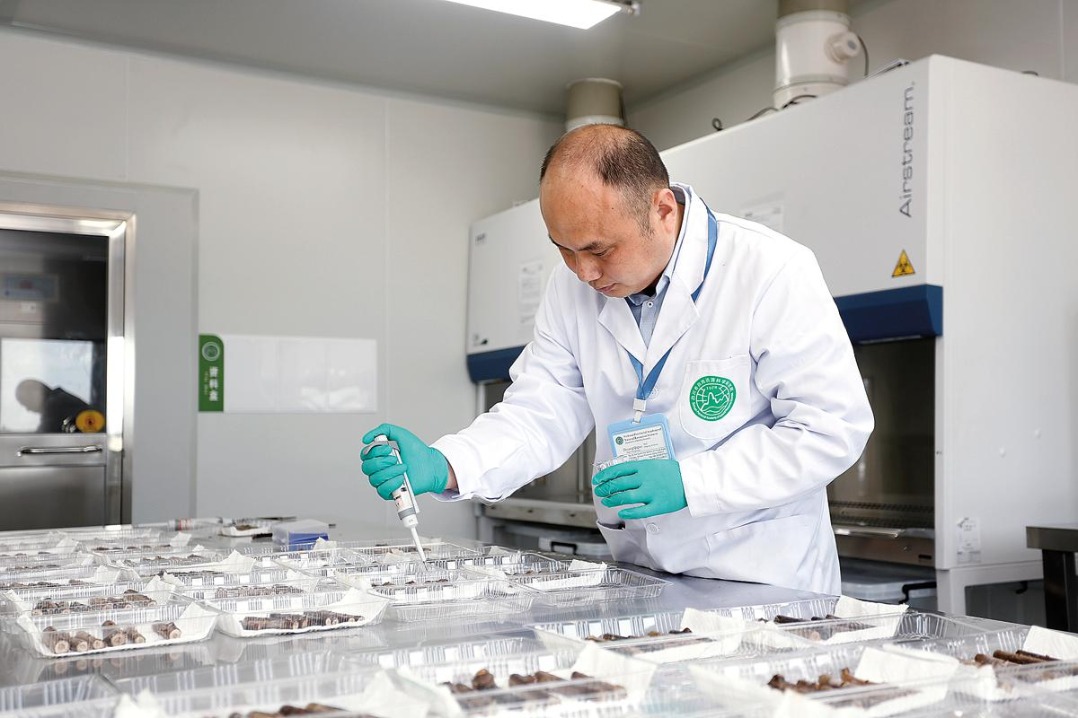Ministry to oversee cleanup of dump sites in Hebei, Tianjin

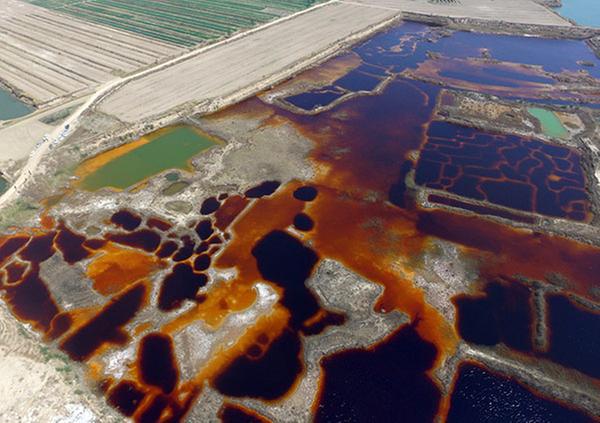 |
| Ponds filled with industrial waste-about the size of 21 soccer fields-in Dacheng, Hebei province, have been targeted for cleanup. Photo was taken on Saturday.[Deng Jia/For China Daily] |
The Ministry of Environmental Protection said on Tuesday that it will supervise the treatment and restoration of polluted dump sites in Langfang, Hebei province, and Tianjin's Jinghai district.
The move came three days after pictures of two large dumping pits in Langfang's Dacheng county went viral.
The two pits, measuring 170,000 and 30,000 square meters, accumulated waste of various types through years of illegal dumping of acidic waste and materials laced with heavy metals. The pollution has found its way into water and soil in the area, authorities said.
Hebei will treat all its polluted dumps by July following a comprehensive examination across the province, its environment watchdog announced on Monday.
All 13 cities in the province have been ordered to monitor the water quality near the pits and to identify the sources of pollution discharges, the Hebei Environmental Protection Bureau said.
If the water quality does not meet safety standards, further investigation of the soil in and around the dump sites will be carried out, possibly including checks of underground water quality, it said.
Waste handling will be checked at factories that discharge heavy metals and other hazardous pollutants. After the inspection, all polluted pits will be treated and good environmental conditions will be restored, the bureau said.
In addition, those discharging pollution will be held accountable, and government officials will be punished if they are found to have neglected their environmental duty.
Langfang's Dacheng county has invited professionals from Tsinghua University, the Chinese Research Academy of Environmental Sciences, and the Chinese Academy for Environmental Planning to monitor the water and soil quality of the dump sites.
It also said it will take measures to curb pollution in towns and villages, and check on local factories that discharge acids.
The county has already punished eight government officials for failing to effectively control pollution.
Two waste treatment companies were contracted to bring the area's water quality back to normal but they failed, according to the Dacheng government.
"It's because they didn't thoroughly figure out where the pollution came from and what the state of water quality was at the time," Peng Yingdeng, an expert at the Beijing Municipal Research Institute of Environmental Protection, was quoted as saying by Beijing News.
Peng said an overall examination is necessary. After that, the government can develop procedures for dealing with the pollution. Restoring water and soil to clean condition is costly and time-consuming, Peng added.
Similar polluted dump sites were also found in Tianjin's Jinghai district.
According to the Tianjin Environmental Protection Bureau, the city has started an investigation and begun remedial treatment where necessary.
Zhao Xu, a Tianjin resident who majored in environmental engineering, said the governments' reactions to the incident has been quick and serious.
"But what if the pits hadn't been exposed?" Zhao asked.
Action must be taken before any harm is done to the public, Zhao said.
Zheng Jinran contributed to this story.
- Death anniversary of Canadian surgeon Norman Bethune commemorated in China
- 1,200 punished for misusing school meal program funds
- China's strong opposition against US arm sales to Taiwan
- Yellow River Basin sees improved ecological environment
- GBA turns into dynamic growth engine for new quality productive forces
- Reproductive health education, fertility services vital to addressing declining birthrates
















